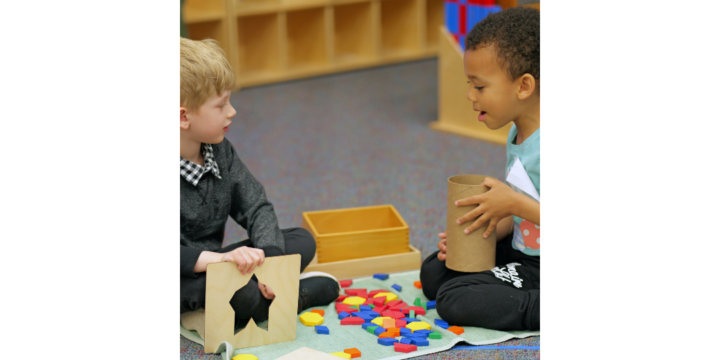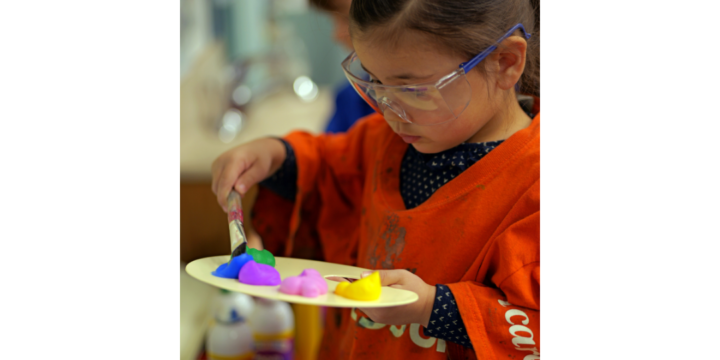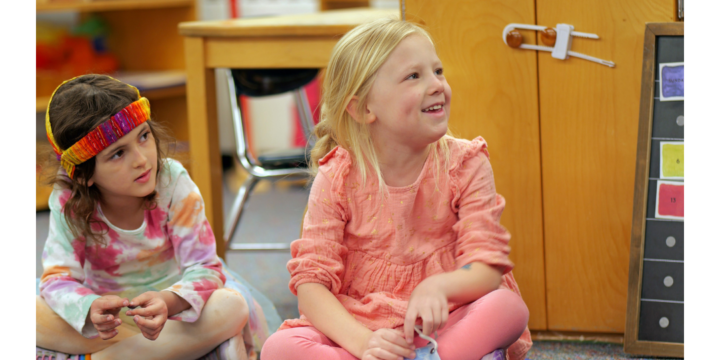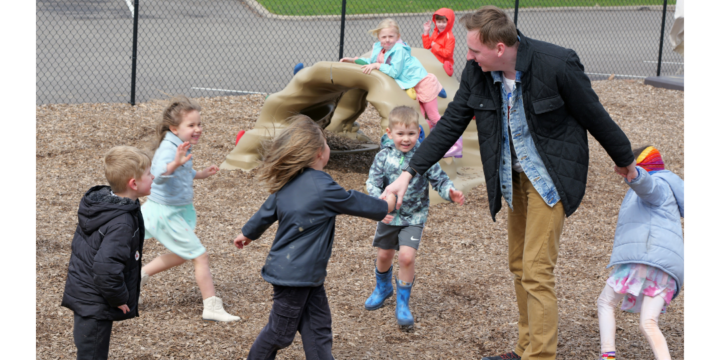




Why Choose Montessori?
A Child-Led Approach to Learning
Montessori education is student-led and self-paced allowing children to take the time they need to fully understand each concept and meet their individualized learning goals.
Teacher Serves as Guide and Facilitator
Seen less as an instructor and more as a guide, Montessori teachers facilitate each child’s individual growth, exploration, and participation.
A Simple Yet Carefully Prepared Environment
Montessori classrooms might look a little different than traditional classrooms with wood materials, floor mats, child-accessible work shelves, and real-life materials. By not using screens, flashing lights, or distracting decor, Montessori classrooms provide a peaceful environment for children to explore and learn. Montessori classrooms are simple in nature but carefully curated.
Promotes Independence & Confidence
Multi-aged classrooms create natural opportunities for independence, collaboration, and accountability while developing important social skills.
Fosters a Love for Learning
Cultivates a desire to learn rather than the goal of filling a child with facts from a pre-selected course of studies.
Focuses on Education of the Whole Child
Unique hands-on materials provide tangible learning experiences in 5 core areas: math, language, cultural, sensorial, and practical life.
Characteristics of a Montessori Education
- Multi-age groupings (2-3 year age span) within the classrooms.
- All classroom furnishings are sized for the child.
- Independence is encouraged.
- Children select activities which meet their individual interests and readiness.
- Emphasis is on the process of the activities, not the product created- so a natural love of learning is allowed to blossom.
- When learning new concepts, children begin with the concrete and then move on to the abstract.
- Children learn through practicing skills learned, not just by listening and forced memorization.
- Children will demonstrate mastery of an academic skill before they progress to the next level of difficulty.
- Curriculum promotes hands-on exploration including practical living skills, sensorial, math, language, history, sciences, art, music and perceptual motor development.
- Lessons are presented one-on-one or in small groups.
- Children work and learn at their own pace in a noncompetitive environment; child’s progress is tracked with portfolio assessment.
- Classroom environment is maintained by the children.
- Peer teaching is encouraged, developing the child’s leadership skills.
Montessori graduates:
- are usually very adaptable
- have learned to work independently and in groups
- have been encouraged to make decisions from an early age and are problem solvers who can make choices and manage their time well
- have been encouraged to exchange ideas and to discuss their work freely with others
- have good communication skills which help ease the transition into new setting